Enhance Your Contact Centers with Reliable SIP Trunking Solutions
Contact centers face uniquely demanding communication challenges. Handling high call volumes while maintaining excellent customer service requires powerful, flexible, and cost-effective telecommunications infrastructure. Session Initiation Protocol trunking offers call centers a transformative approach to voice connectivity, enabling enhanced customer experiences while significantly reducing operational costs.
DIDlogic specializes in providing IP-based voice solutions designed specifically for contact center environments. Our systems help customer service operations achieve unprecedented flexibility, reliability, and scalability while maintaining crystal-clear call quality.
What Are Internet-Based Voice Solutions for Customer Service Operations?
Many contact centers continue operating with outdated phone systems that limit their capabilities and drain budgets through excessive line costs and maintenance. These legacy systems often create barriers to implementing modern customer service strategies while consuming resources that could better serve business objectives.
IP telephony transforms voice calls into digital data packets transmitted over internet connections rather than conventional phone lines. This fundamental shift delivers several immediate advantages particularly valuable for high-volume call environments:
- Dramatic reduction in per-call costs
- Seamless scalability during peak calling periods
- Enhanced call quality monitoring and analytics
- Geographic flexibility for distributed agent teams
- Integration with customer relationship management systems
- Advanced features supporting omnichannel service strategies
Forward-thinking contact center operators increasingly recognize these benefits, making digital voice communications a strategic competitive advantage rather than merely an operational expense.
Core Benefits for Customer Service Operations
Cost Efficiency and Predictable Expenses
Contact centers must carefully manage communication expenses while handling massive call volumes. Traditional telecom setups require expensive dedicated lines for each agent position, resulting in substantial monthly expenses regardless of actual usage.
Voice over IP technology dramatically reduces these costs through:
- Elimination of per-minute charges for many call types
- Consolidated voice and data networks
- Reduced hardware requirements and maintenance
- Lower international and long-distance fees
- More predictable monthly expenses
- Ability to route calls through optimal cost paths
A typical mid-sized contact center can reduce telecommunications expenses by 50-70% after implementing internet-based voice solutions. These savings directly impact profitability while maintaining or improving service capabilities.
Enhanced Customer Experience
Customer satisfaction often hinges on call quality and efficient routing. Modern voice systems improve these critical factors through:
- Crystal-clear HD voice quality
- Reduced call setup times
- Intelligent routing based on customer history or needs
- Minimized hold times through efficient queue management
- Seamless transfers between departments or specialists
- Integration with customer data for personalized service
These capabilities help transform potentially frustrating customer service calls into positive experiences that build loyalty and encourage repeat business – critical outcomes for any customer-focused organization.
Scalability for Variable Call Volumes
Contact centers typically experience significant fluctuations in call volume based on time of day, seasonal factors, or marketing campaigns. Cloud-based voice solutions adapt effortlessly to these changes:
- Instantly adjust capacity for promotional events
- Scale down during quieter periods without paying for unused capacity
- Add temporary agents during seasonal peaks
- Implement queue management during high-volume periods
- Deploy specialized messaging for unusual circumstances
- Maintain consistent service levels regardless of volume
This flexibility eliminates the communication bottlenecks that often accompany successful marketing initiatives, allowing your contact center to capitalize on opportunities without infrastructure limitations.
Business Continuity and Disaster Recovery
Contact centers cannot afford downtime that might impact customer service or revenue generation. Traditional phone systems remain vulnerable to physical damage, power failures, and equipment malfunctions. In contrast, cloud-based voice solutions offer robust contingency options:
- Geographic redundancy across multiple data centers
- Automatic failover to backup systems or connections
- Call routing to alternate locations or remote agents
- Business continuity during facility issues
- Remote administration capabilities
- Real-time status monitoring and alerts
These capabilities ensure your contact center remains operational during adverse conditions, maintaining customer service continuity when competitors might be unavailable.
Advanced Analytics and Performance Insights
Data-driven contact centers require comprehensive communication metrics to optimize operations. IP-based systems provide detailed analytics including:
- Comprehensive call records and patterns
- Agent performance metrics and comparisons
- Customer experience indicators
- Real-time dashboards and historical reporting
- Quality monitoring and coaching opportunities
- Trend analysis for resource planning
These insights enable continuous improvement through evidence-based decision making, helping contact center managers optimize both efficiency and customer satisfaction.
Implementation Considerations for Contact Centers
Call Quality Requirements
Voice clarity remains paramount in customer service environments. Key factors affecting quality include:
- Network bandwidth and consistency
- Quality of Service (QoS) implementation
- Appropriate headset or handset selection
- Echo cancellation and noise reduction
- Jitter buffering and packet loss handling
- Codec selection for optimal voice reproduction
DIDlogic’s contact center implementations include comprehensive quality assessment and optimization to ensure every customer interaction benefits from crystal-clear voice quality.
Integration with Contact Center Platforms
Maximum value comes from connecting voice communications with your existing customer service infrastructure:
- Customer Relationship Management (CRM) systems
- Call recording and quality monitoring
- Workforce management platforms
- Interactive Voice Response (IVR) systems
- Omnichannel messaging platforms
- Customer feedback and survey tools
Our solution architects design integration frameworks that connect voice communications with essential contact center systems, creating unified workflows that enhance agent productivity and customer experience.
Virtual Agent Support
Many contact centers now employ remote or at-home agents. IP-based voice systems support this flexible staffing model through:
- Location-independent extensions and call handling
- Quality monitoring regardless of agent location
- Consistent call routing and distribution
- Secure remote access protocols
- Identical features for on-site and remote staff
- Centralized management of distributed teams
These capabilities ensure your virtual agents deliver consistent, professional service regardless of physical location – particularly valuable for contact centers embracing flexible staffing models or follow-the-sun service strategies.
Compliance and Security
Contact centers often handle sensitive customer information subject to various regulations. Modern voice systems support compliance through:
- Call recording with encryption and access controls
- Payment Card Industry (PCI) compliant processing options
- Detailed audit trails of system access and changes
- Role-based permission systems
- Data protection measures for customer information
- Secure integration with customer databases
DIDlogic’s implementation team works closely with your compliance personnel to ensure all deployments meet or exceed industry requirements for data protection and security.
Technical Specifications
DIDlogic’s contact center voice solutions include:
- Enterprise-Grade Connectivity: Standards-based SIP trunking with high capacity
- Reliability Measures: Redundant connections and automatic failover
- Voice Quality: HD audio with optimized network handling
- Management Interface: Comprehensive administrative portal
- Analytics: Detailed call reporting and performance metrics
- Security: Encryption and compliance controls
- Integration Framework: APIs for contact center platform connectivity
- Scalability: Dynamic capacity adjustment based on demand
Our engineers configure these components based on each contact center’s specific requirements, ensuring the right balance of features, reliability, and cost-effectiveness.
Contact Center Success Examples
While every operation has unique needs, examining how similar organizations leverage modern communication technology provides valuable perspective. Below, we’ve outlined how various types of contact centers have benefited from implementing IP-based voice solutions:
Customer Support Operation
A technical support center handling 15,000 calls daily sought to improve both cost efficiency and customer satisfaction. Their implementation includes:
- CRM integration displaying customer history during calls
- Skills-based routing to appropriate technical specialists
- Quality recording for training purposes
- Real-time dashboards for supervisor monitoring
- Automatic callback options during high volume periods
- Detailed analytics for staffing optimization
This integrated approach has reduced their telecommunication costs by 62% while simultaneously improving customer satisfaction scores and first-call resolution rates.
Sales Contact Center
A direct response marketing operation needed flexible capacity for promotional campaigns while controlling costs during quieter periods. Their solution features:
- Dynamic capacity scaling for television promotions
- Intelligent routing based on product interest
- Integration with order management systems
- Call recording for compliance and training
- Detailed conversion analytics by agent and call source
- Cost-optimized routing for international calls
The implementation has enabled them to handle 300% call volume increases during promotions without busy signals or excessive wait times, significantly improving conversion rates and revenue.
Financial Services Contact Center
A banking contact center with strict security and compliance requirements needed to modernize while maintaining regulatory adherence. Their implementation includes:
- Encrypted call recording with secure storage
- PCI-compliant payment processing capabilities
- Detailed audit trails for compliance verification
- Multi-factor authentication for system access
- Integration with banking CRM systems
- Quality monitoring for regulatory adherence
This approach has strengthened their compliance posture while reducing telecommunications expenses by 47% compared to their previous system.
Implementation Process with DIDlogic
1. Contact Center Assessment
Our specialists begin by understanding your specific requirements:
- Current call volumes and patterns
- Peak period demands and scaling needs
- Integration requirements with existing platforms
- Agent distribution and remote work requirements
- Compliance and security considerations
- Budget constraints and ROI expectations
This consultation ensures we design a solution that addresses your unique operational needs rather than a generic approach.
2. Solution Design
Based on assessment findings, we develop a tailored solution including:
- Technical specifications and capabilities
- Implementation timeline and milestones
- Training approach for agents and supervisors
- Integration plan with contact center platforms
- Testing methodology for quality assurance
- Budgetary projections and ROI analysis
The proposal undergoes review with key stakeholders to ensure alignment with your business objectives and operational requirements.
3. Phased Implementation
Our structured deployment process minimizes disruption to ongoing operations:
- Network preparation and optimization
- Number porting or provisioning
- System configuration and testing
- Agent setup and profile creation
- Integration with existing contact center systems
- Parallel operation during transition if needed
Most implementations proceed in phases to ensure business continuity throughout the transition process.
4. Comprehensive Training
Role-based training ensures all team members can effectively utilize the system:
- Agent training focused on daily call handling
- Supervisor training for monitoring and management
- Administrator training for system maintenance
- Documentation and reference materials
- Video tutorials for self-paced learning
- Refresher sessions after initial implementation
Our training approach emphasizes practical usage in contact center environments, ensuring staff at all levels can leverage system capabilities effectively.
5. Ongoing Support and Optimization
DIDlogic provides continuous support as your contact center evolves:
- 24/7 technical assistance
- Regular system updates and security patches
- Periodic reviews of system utilization
- Optimization recommendations based on usage patterns
- Consultation on emerging contact center technologies
- Capacity planning for growth or special events
This ongoing relationship ensures your communication system remains aligned with your changing business requirements and customer service objectives.
Frequently Asked Questions
How does internet telephony affect call quality in contact center environments?
Modern IP voice technology typically delivers superior audio quality compared to traditional phone systems when properly implemented. While early VoIP services sometimes suffered from quality issues, current HD voice codecs provide significantly clearer sound than conventional connections. The key factors affecting quality are adequate bandwidth, proper Quality of Service (QoS) implementation, and appropriate endpoint devices. DIDlogic’s pre-implementation assessment ensures these factors are optimized for your specific contact center environment.
Can our contact center keep existing phone numbers when transitioning?
Yes, number portability regulations allow contact centers to retain existing phone numbers during the transition. DIDlogic manages the porting process with current carriers, ensuring continuity for customers and preserving the value of your published contact information. This process typically takes 2-4 weeks depending on your current carrier and number quantity. During transition, we can implement call forwarding to ensure uninterrupted service.
What network requirements should our IT department consider?
Voice communications require relatively modest bandwidth (approximately 85-100 Kbps per concurrent call) but demand consistent quality. More important than raw bandwidth is network configuration – including Quality of Service (QoS) implementation to prioritize voice traffic, network segmentation to separate voice from data, and consistent performance. DIDlogic provides detailed network recommendations based on your specific call volumes and existing infrastructure.
How quickly can we scale capacity for unexpected call volume increases?
Unlike traditional phone systems with fixed capacity, cloud-based solutions can scale almost instantly. Additional capacity can typically be provisioned within minutes through administrative portals, compared to the days or weeks required for traditional line installation. This flexibility ensures promotional successes never become customer service failures through busy signals or excessive wait times.
What happens during internet outages or service disruptions?
Business continuity features prevent contact center disruptions during network issues. Automatic failover can route calls to alternate connections, locations, or mobile devices. For contact centers requiring high availability, DIDlogic offers redundant connection options, geographic distribution, and comprehensive business continuity planning. These contingency measures ensure your customer service remains operational when competitors might be unavailable.
Ready to Transform Your Contact Center Communications?
DIDlogic specializes in helping customer service operations implement reliable, scalable, and cost-effective communication solutions. Our team understands the unique challenges facing contact centers and designs systems that enhance customer experience while reducing operational expenses.
Contact our specialists to schedule a consultation and learn how internet-based voice services can become a competitive advantage for your contact center.
Related Solutions:








